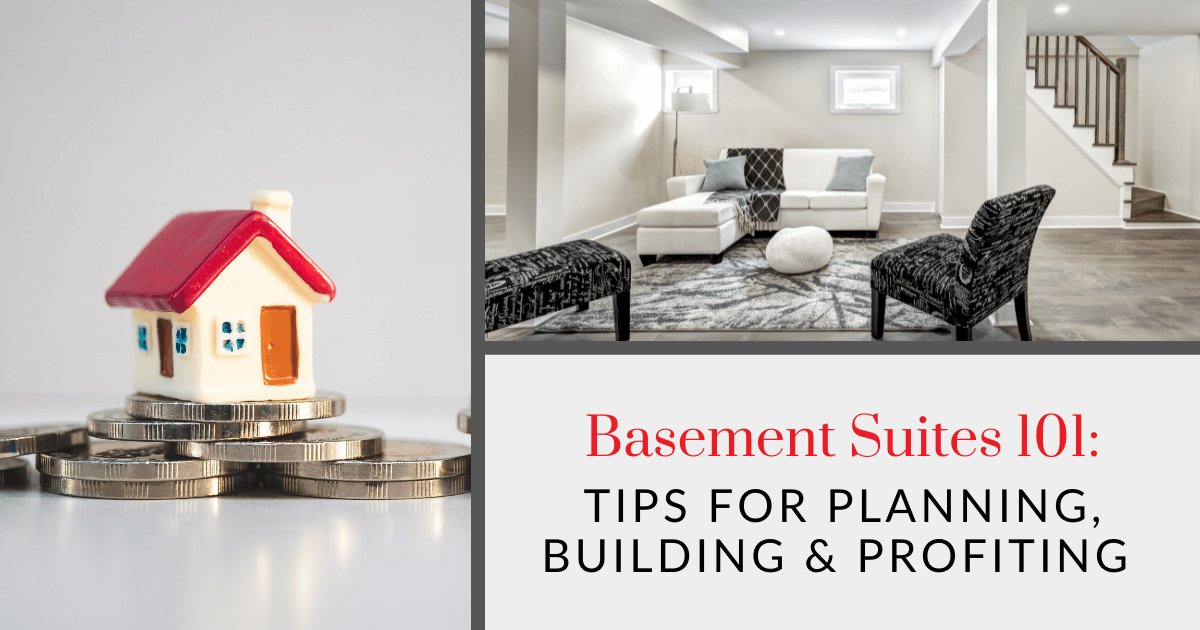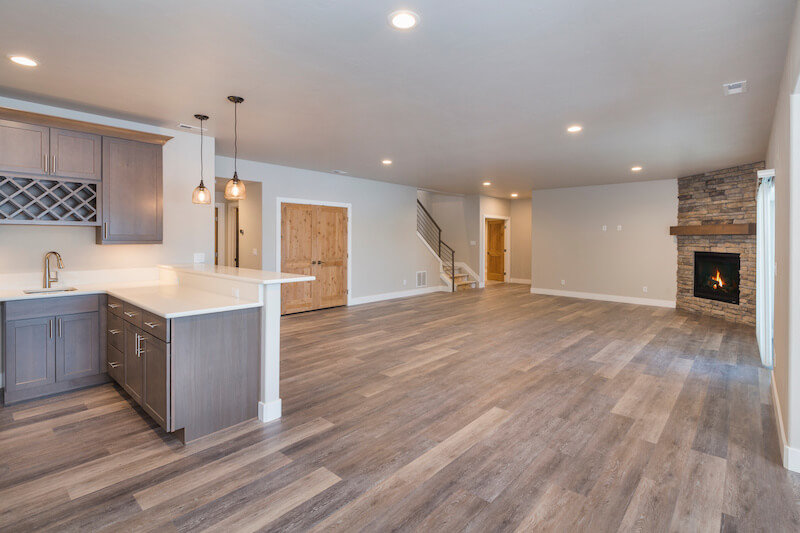Basement Suite Guide: How to Rent Out a Basement Apartment
Posted by Justin Havre on Thursday, October 20th, 2022 at 10:33am.

Homes with basements give owners opportunities to have extra space to offer as rentals. Investing in a home with a basement suite allows owners to earn passive income and offset mortgage payments, providing increased equity as the home appreciates. Basement apartments can be lucrative, but they require unique steps from start to finish. Here's what you need to know about converting a basement into an apartment, accommodating local zoning laws, and finding tenants so you can profit off your basement suite.
What Is a Basement Suite?
Basement suites are separate units located on the lower levels of a home. This means that another individual can live there, essentially turning a single-family home into a multi-family home. Homes with basement suites are one of the best property types for multi-generational homes because they offer the best balance of convenience and privacy.
Basement suites have the most amenities that an apartment or a traditional home would have, but the space is located in the basement. Basement suites that are intended to be rentals must have a few key features, including:
- Kitchen
- Bathroom
- Living Room
- Bedroom
- Storage Space
- Entry Access
The minimum requirements will vary between provinces and jurisdictions, but these basic requirements are typical. Another consideration is that basement windows must be large enough to allow a person to vacate in emergencies such as fires. Owners wanting to rent out the area should plan to make the basement suitable for the typical comforts of a home.
How to Convert Your Basement into a Rental Apartment

Converting your basement into an apartment takes varying amounts of time and effort, depending on if you have a finished basement or an unfinished basement. After settling on a general layout for a basement apartment, create a floor plan that will be the foundation of the renovation. Owners need to consider how much living space they have and determine how many bedrooms they want to add.
It's a good idea to look at local apartment listings to find out what size units are typical in the area. Owners who want to maintain their own private space without tenants using the primary home's entrance may want to prioritize including a private entry to the basement suite.
Another aspect of transforming a basement into a rental suite is to enlarge or add windows to add natural lighting. Adding insulation for heating and cooling retention is an energy-efficient home upgrade that also reduces noise levels between units.
If the basement suite is going to be used for short-term rentals or as an Airbnb, adding essential furnishings and appliances will be necessary. Some ideas include Murphy beds, wall-mounted toilets, towels, an oven or microwave and a coffee maker for guests' convenience. Some carpet rugs and curtains can add charm and appeal to the area.
Zoning Laws to Consider for Basement Suites
Owners need to refer to zoning laws related to basement suites to ensure that their rental is legal. Some areas may not restrict what owners do with the property, but most require owners to abide by specific renovation zoning laws and landlord-tenant regulations. Typical zoning requirements include rules on the number of occupants living in the basement apartment, parking requirements, and fire escape plans.
For example, in Ontario, basement apartments must meet building codes and zoning requirements. For units over five years old, the basics include the following:
- Having 145 square feet of space
- A minimum of 1.95 metres of ceiling height
- Windows that are a minimum of 5 percent of the living area and 2.5 percent of the bedroom
- Hot & cold water sinks in the kitchen and bathroom
- Access to laundry
- Heating, cooling, and electrical
- The second means of escape
In Quebec, a basement apartment has regulations based on the apartment's location. The most pressing issue is the location and availability of an escape window. Furthermore, secondary suites must have a dedicated entrance, a bathroom and a kitchen. Alberta building code requirements for basement suites include having ventilation and heating systems, which may require two dedicated furnaces to comply with the most recent Canada code publications. An illegal basement will almost always cost more in remediation expenses than it would to get the proper permits from the start.
How to Find Tenants & Price Your Basement Suite
Once the unit is up to code, owners can take steps toward becoming a landlord. When listing the property, take professional-style photos or hire an experienced photographer to capture the best aspects of the basement apartment. Be sure to list any updates or extra amenities that are available for tenants.
Of course, setting a fair but profitable rental price is essential to attract potential renters. This will require research to determine what similar basement suites are rented for in the area. It can be helpful to evaluate the competition locally, so look for listings that might be competitors in the neighbourhood before deciding on a tentative rental price point. Also, be sure to interview potential tenants and run background checks that cover rental history and proof of income.
Are You Ready to Profit From Your Basement Suite?
While basement renovations can be daunting, they often become a valuable asset to many owners. Offsetting mortgage payments through extra income is the biggest perk, and approaching it with a bit of knowledge and dedication will help set you up for success when renting out your basement.

